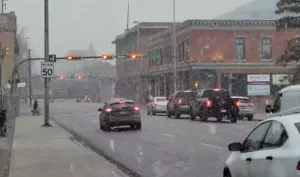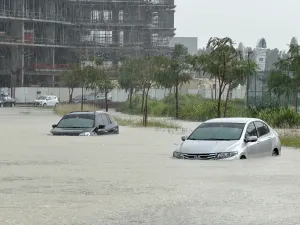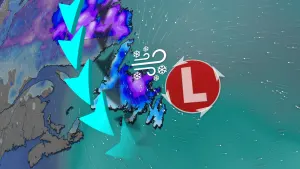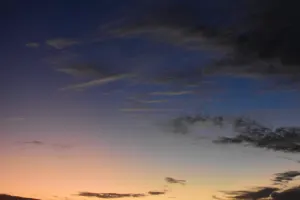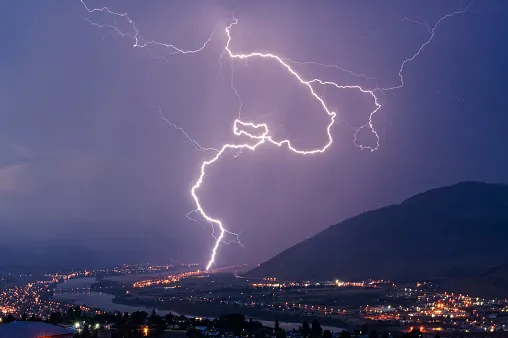
Canada Day disasters: Six times July 1st featured awful weather
The weather hasn't always cooperated when celebrating Canada's birthday.
Statistically, someone across our vast home and native land is likely to have less-than-ideal weather for the Canada Day holiday.
If it's the turn of your corner of Canada this year, take heart: At least it's (probably) not raining fish.
Here are some of the worst weather events to hit Canada on July 1.
CANADA DAY TORNADOES
Canada's birthday was marked with destruction on July 1, 1881, when a tornado struck a Mennonite settlement near Niverville, Man.
Environment Canada quotes eyewitness reports as saying one person was killed, a boy who was swept up by winds and struck by lightning, dying several days later. At least one home was destroyed, and the twister physically lifted a mechanical reaper off the ground in one field.
It's not the only twister around that date. On July 30, 1792, the better part of a century before Confederation, Canada's first-ever recorded tornado tore through part of a forest between Fonthill and Port Robinson on Ontario's Niagara Peninsula. The enterprising residents of the area built a road along the damage path, which to this day is known as Hurricane Road.
And on June 30, 1912, an F4 tornado ripped through Regina, Sask.
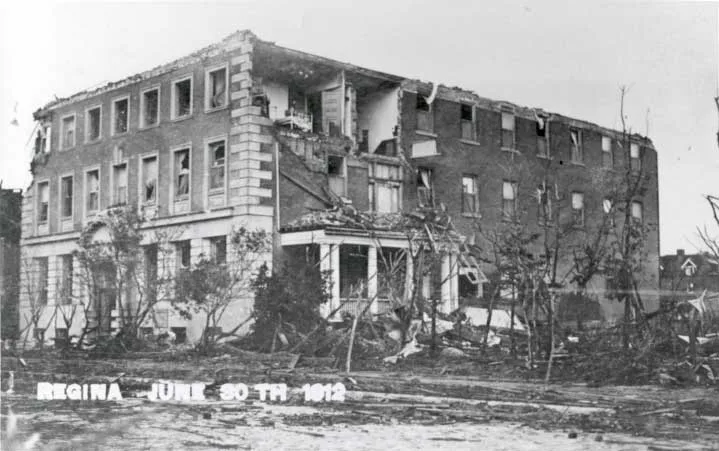
Aftermath of the Regina Cyclone. Image: Saskatchewan Council for Archives and Archivists/Wikimedia Commons
The twister ripped through homes and industrial areas, killing 28 people and injuring hundreds more. Although the day before Dominion Day, as July 1 was then known, Canada's 45th birthday celebrations would have been muted amid the carnage of what had happened the day before.
1903: RAINS OF FISH ON THE PRAIRIES
July 1, 1903, wouldn't be marked by such a disaster as a tornado. What happened that day was just plain weird.
People in Moose Jaw, Sask., marked the holiday by scrambling for cover as a rain of small fish tumbled from the skies.
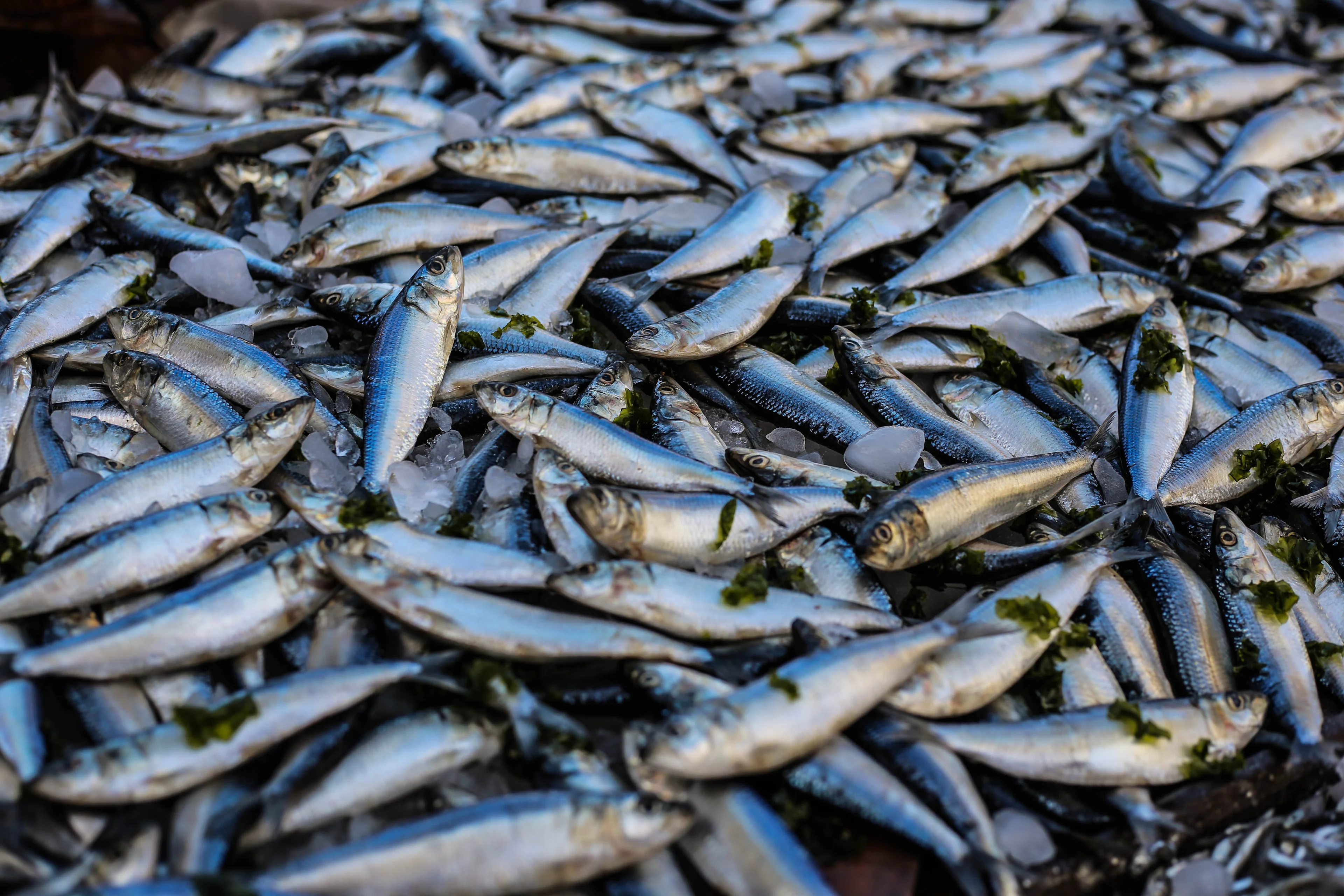
The sources are regrettably silent about exactly what kind of fish they were, but they were likely scooped up from a pond or river by a tornado during a thunderstorm that later deposited them back on land.
Not to be outdone, people in Lethbridge, Alta., were apparently treated to a rain of beetles on July 1, 1912, again after a thunderstorm. Not exactly auspicious for the parade.
1911: HEAT WAVE KILLS SCORES IN ONTARIO AND QUEBEC
Imagine struggling through Canada/Dominion Day celebrations in 40-degree heat.

Credit: David Bradley.
Some parts of Canada will feel almost that hot this year with the humidity, and without taking precautions, that kind of extreme heat can kill -- which is what happened in July 1911, when a days-long heat wave began on the first of the month in central Canada.
One Montreal history blog says people slept outside on their verandahs when they could, while major fires raged in the north. Over the course of the heat wave, the city's temperature would come close to 40°C. In neighbouring Ontario, it was just as warm, with Hamilton hitting 41°C.
While we weren't able to find reliable figures on deaths in Canada, a similar heat wave in the United States that began around July 4 killed an estimated 380 people.
1956: KILLER STORMS
Forecasters take severe storms very seriously. It's not just a matter of a stiff breeze: A strong storm can absolutely kill.
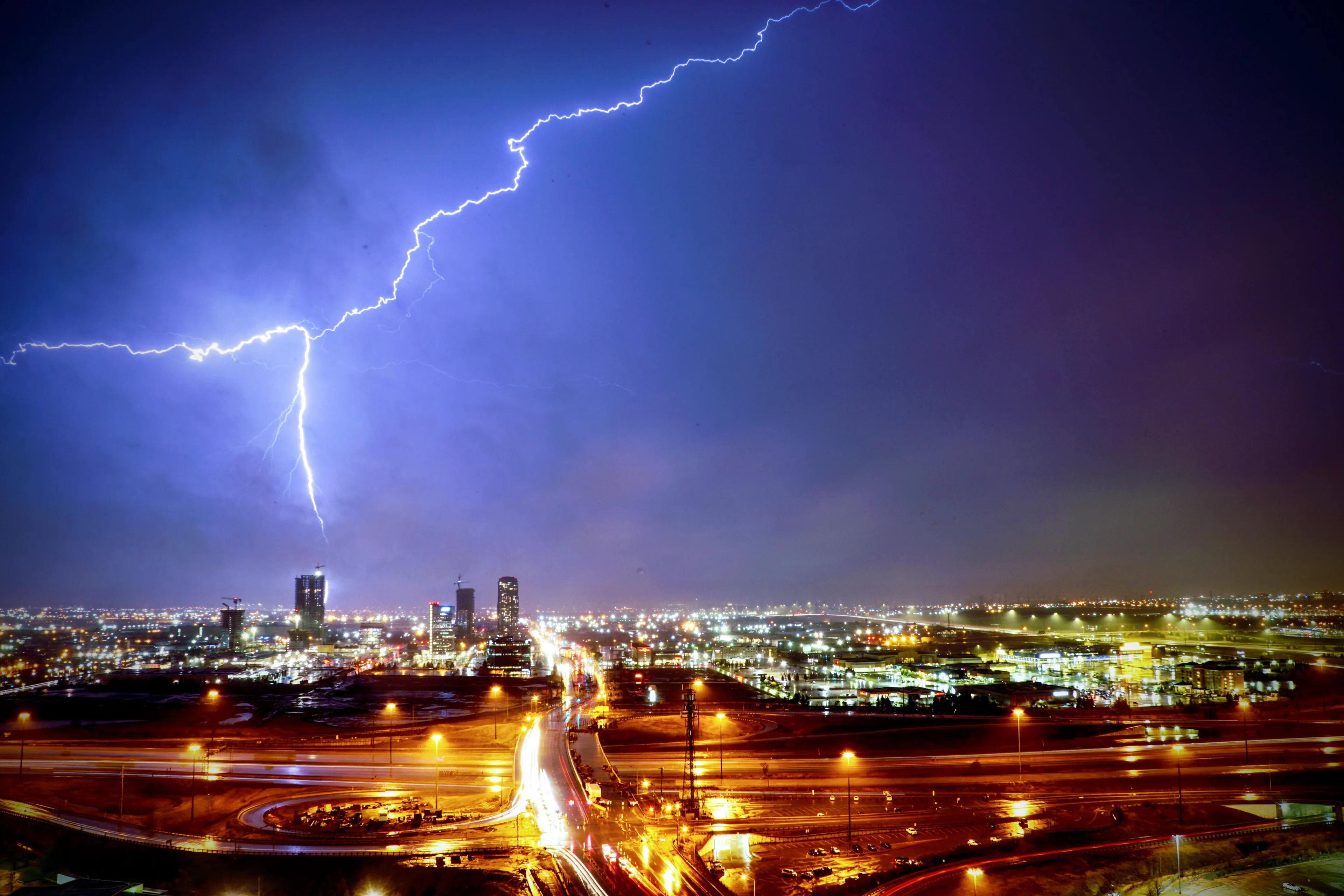
Credit: Yijie Lu
On July 1, 1956, a storm which Environment Canada says was the summer's most violent lashed Ontario, at a time when most of the population would have been out and about enjoying the day, with little cover.
Some 13 people were killed. Seven of those were picnickers, who were killed when lightning struck an elm tree that fell on their car.
Boaters had a rough time, with strong winds whipping up the surf to such an extent that some boats were tossed onto the shores of Lake Simcoe. Elsewhere, the storms disrupted power and communications infrastructure.
1962: A TORNADO IN B.C.
In theory, any thunderstorm could conceivably produce a tornado but, for a variety of reasons, it is VERY rare to see one in B.C. In fact, out of an average 82 tornadoes annually nationwide, B.C.'s 30-year average is a lousy 0.6 per year, and you're more likely to see them in the Interior.
Still, they CAN happen, and on July 1, 1962, a small one was spotted not far from Vancouver. And even then, it was an illustration of how rare twisters are in those areas: That particular weather office had only been open since 1929, and this was only the first tornado they'd seen since.
The occasional B.C. tornado can cause damage (one in 1966 caused major damage to the town of Ucluelet), but it happens so seldom that they're just not part of the culture (even the one spotted in 2012, below, was actually more likely a dust devil than an actual tornado).
2001: CANADA DAY SNOW
Even in our northern climes, the first day of July is usually considered a bit late for a good snowfall, unless you live in the far north.
So we can just imagine how far people's faces fell when Canada Day rolled around and, sure enough, the flakes began to fall.
This seems to have been what happened in 2001, particularly in northern and central Ontario and Quebec. Records from that day are hard to find, but we do know that Kapuskasing, Ont., in particular got 3 cm of snow, so cities along that latitude likely got similar.
But the snow could have even been more widespread than that. Environment Canada says many fireworks displays were cancelled, including those on Parliament Hill in Ottawa!
It wasn't a taste of the summer to come, though. Despite the less-than-promising weather on Canada's birthday, the summer ended up being the third-warmest on record at the time.
So if it's a little rainier than you'd like this Canada Day, remember it could be way worse.
SOURCES: Environment Canada | Barrie Examiner | Saskatchewan Archives | The Weather Network | Hamilton Spectator | My Montreal Stories | History.com | Canadian Lightning Stories | The Weather Doctor | Record Meteo | Environment Canada







